- Supplements
- Fat Burners
- Pre Workout Booster
- Testo Booster
- Ephedrine HCL
- ECA stack
- Yohimbine
- Prohormones
- SARMs
- Power
- Muscle
- Accessories
- Fat loss
- Diet
- Health
- Endurance
-
Cart
-
50€+ Order = Free Shipping
*AT & DE

Manufacturers
BESTSELLER
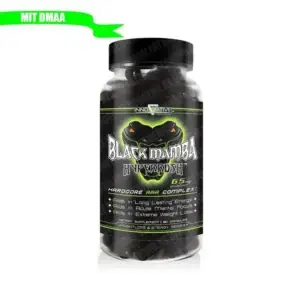
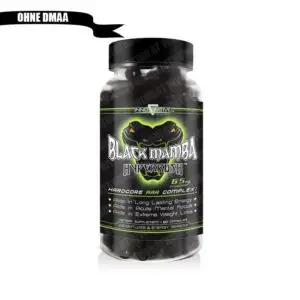


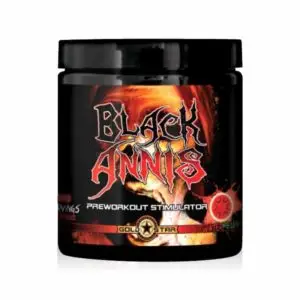


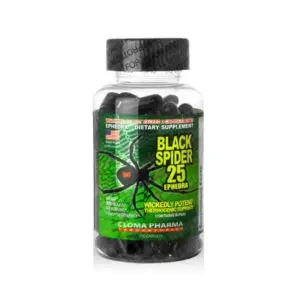
About
FATBURNERKING


Individual Amino acids
Here you can find our individual amino acids to buy! Whether L Leucine, L Arginine, L Citrulline and many more for your sporting goals. Browse through our category or let our product advisor show you the ideal product!
Here you get the best quality amino acids at a good price.
Showing all 11 results
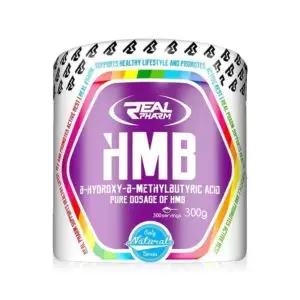

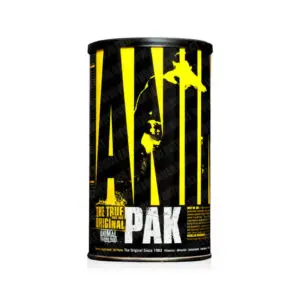
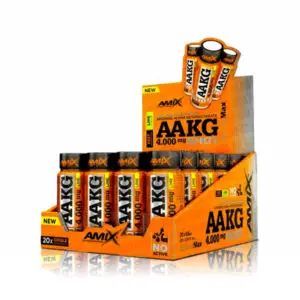
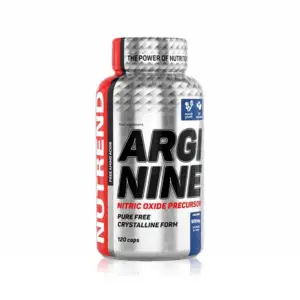
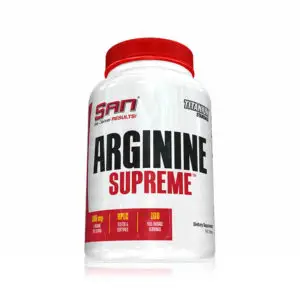
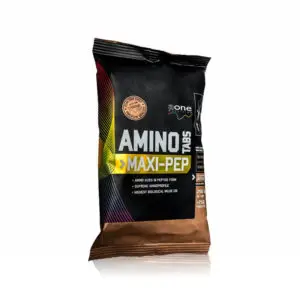


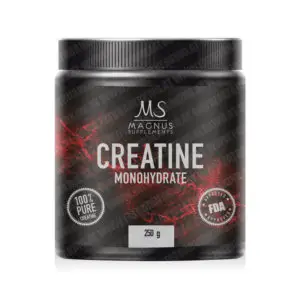
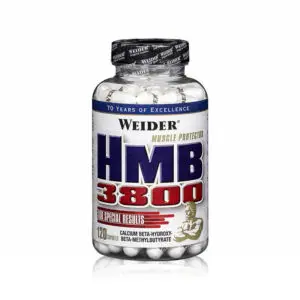
Amino acids play a crucial role in sport, especially for athletes who train intensively. They are the building blocks of proteins and therefore make a significant contribution to muscle building and regeneration. Intensive training increases the need for amino acids, as the body needs more proteins to repair and build muscle tissue. Supplements with amino acids, such as EAA (Essential Amino Acids) and BCAA (Branched-Chain Amino Acids), are particularly popular in the sports and fitness sector, as they can help to support various goals and make them easier to achieve, whether as additional energy in the diet or to enhance meals (L-leucine).
Essential amino acids are indispensable for the body as they play a central role in various biological processes, including muscle building and the formation of enzymes and hormones. However, the body cannot produce these amino acids itself, which is why they must be obtained from food or supplements. The essential amino acids include L-leucine, L-isoleucine, L-valine, L-lysine, L-phenylalanine, L-threonine, L-tryptophan, L-methionine and L-histidine. The BCAAs, namely leucine, isoleucine and valine, are of particular interest to athletes as they are metabolized directly in the muscle and can shorten the recovery time after training. Supplementation of these amino acids can be particularly important for vegans and athletes who are exposed to a high training load in order to prevent a deficiency.
Amino acids are the fundamental building blocks of proteins and play a central role in the human body. They are divided into three main categories: essential, semi-essential and non-essential amino acids. Essential amino acids cannot be produced by the body itself, so they must be taken in via the diet or food supplements. Semi-essential amino acids are necessary in certain situations, such as during phases of intensive growth or illness. Non-essential amino acids, on the other hand, can be synthesized by the body itself. This variety of amino acids is crucial for the formation of tissue and the synthesis of enzymes and hormones, which are essential for the body's many functions.
Essential amino acids are those that the human body cannot produce itself and must therefore be obtained from food. These include the branched-chain amino acids, also known as BCAAs: leucine, isoleucine and valine. These three amino acids are particularly important for maintaining and building muscle tissue, as they play a crucial role in protein synthesis.
Methionine and tryptophan are also essential amino acids. Methionine is important for starting protein synthesis and acts as a supplier of sulphur compounds in the body, while tryptophan is a precursor for neurotransmitter production, which influences the sleep-wake rhythm and mood. Overall, essential amino acids are essential for many bodily functions, including the production of enzymes and hormones that regulate metabolism and support the immune system.
Semi-essential amino acids are not vital under normal circumstances, but are essential in certain situations as the body is unable to synthesize them in sufficient quantities. One example of this is arginine, which plays a crucial role in the dilation of blood vessels and is increasingly required during stressful situations or intensive training sessions. It is the only precursor of nitric oxide (NO), which improves blood flow and optimizes oxygen transport. This is why it is often part of nutritional supplements for athletes to boost performance.
Cysteine, also a semi-essential amino acid, is important for the formation of glutathione, an important antioxidant in the body. While cysteine can be synthesized under normal conditions, additional dietary intake is often necessary in situations of increased stress. Both amino acids are therefore important components of a balanced diet that help the body to fulfill its functions effectively.
Amino acids are the basic building blocks of proteins and play an essential role in the human body. They contribute to the formation and maintenance of body tissue and are involved in almost every biological process. Essential amino acids must be ingested daily and in sufficient quantities through food, as the body cannot synthesize them itself. In addition to their role in muscle building, amino acids are involved in numerous functions, including hormone production, support of the immune system and metabolic regulation. In the following sections you will learn more about how amino acids specifically contribute to supporting muscle building, regeneration and weight loss.
In addition, amino acids have a good biological value, which makes digestion unnecessary, as with whey protein, for example, as they are immediately available in the bloodstream. This means that even intensive training does not provoke nausea, which is often the case with whey shakes before training (bloated stomach, also due to sweeteners!).
Amino acids are indispensable for effective muscle building, as they are essential for the formation of proteins and muscle tissue. Essential amino acids such as L-leucine, L-isoleucine and L-valine, known as BCAAs, play a particularly important role. As the body cannot produce these itself, they must be supplied through food or supplements. Amino acids have an anabolic effect, promote the repair and growth of muscles and thus increase strength and endurance.
During intensive training phases, the need for amino acids increases in order to maintain muscle mass and promote regeneration processes. Supplements with branched-chain amino acids are specially designed to reduce fatigue and prevent muscle breakdown. They are therefore particularly valuable for athletes and fitness enthusiasts who regularly undertake intensive training sessions.
In combination with a balanced diet and regular training, amino acids make a decisive contribution to muscle building. Support from nutritional supplements can help to achieve training goals faster and at the same time promote the long-term health of the muscles.
After intensive training sessions, rapid regeneration is of great importance for muscle maintenance. Amino acids such as L-glutamine and BCAA promote this recovery process by stimulating the metabolism and accelerating protein synthesis. Products such as BCAA Drink Powder and Amino Liquid are specially formulated to support recovery after training.
EAA Extreme from Bodylab24 is another example of an effective supplement that contains essential amino acids, BCAA and additional nutrients such as vitamins. This combination not only contributes to muscle regeneration, but can also improve general well-being. An adequate supply of amino acids is particularly important for active individuals and athletes in order to continuously optimize physical performance.
Taking amino acids as a dietary supplement has the advantage of accelerating regeneration, preventing signs of fatigue and shortening recovery times after intensive exercise.
Amino acids also play an important role in supporting weight loss, as they influence fat metabolism and hormone production. Certain amino acids such as arginine, tyrosine and tryptophan contribute to the production of hormones that are important for energy metabolism. During a calorie-restricted diet, amino acids can help maintain muscle mass, which is crucial for maintaining basal metabolic rate and fat loss.
Amino acids support the development of muscle tissue, which in turn helps to burn calories more efficiently and reduce body fat. This increases energy consumption and supports weight loss. A sufficient supply of amino acids can therefore both promote muscle building and improve fat metabolism.
By integrating amino acids into your daily diet, you can benefit from an improved body composition and increased well-being in the long term. For active people and athletes in particular, this can make a significant contribution to achieving their fitness and weight goals.
Amino acids are essential components for the human body, especially for people who undergo intensive training sessions. They play a crucial role in muscle building and regeneration. Essential amino acids that the body cannot produce itself must be obtained from food. Individual amino acids such as the so-called BCAA (branched-chain amino acids) - leucine, isoleucine and valine - are particularly important. Products containing these amino acids are often offered in various fruity flavors and are easy to digest, making them a popular choice for athletes. They not only support muscle protection, but also recovery after high levels of exertion.
Leucine is an essential amino acid that is not only important for athletes, but for anyone who wants to build muscle mass. The body cannot produce leucine itself, which is why it must be obtained from food or supplements. L-leucine plays a central role in muscle protein synthesis, a process that is crucial for muscle building. Numerous scientific findings show that taking 10 to 12 grams of amino acids, including L-leucine, before or after training can significantly increase muscle protein synthesis. Leucine is also a key ingredient in BCAA supplements, which help to delay muscle fatigue and therefore support performance during intense training sessions. For those looking to promote muscle growth and maintain muscle mass, taking L-Leucine is often recommended as part of a comprehensive supplementation strategy.
L-arginine is a semi-essential amino acid that must be both produced by the body and taken in through food. It is known for its ability to be converted into nitric oxide in the body, which has a vasodilating effect. This improves blood circulation and can facilitate intensive strength training. L-citrulline supports this process by being converted to L-arginine in the body, which also promotes the production of nitric oxide. These unique properties make L-arginine and its related supplements a popular choice among athletes. High-dose L-arginine supplements in particular are often used to improve blood flow and thus enable more intensive training. The uniqueness of L-arginine is also reflected in its chemical structure, as it contains four nitrogen groups among the amino acids, which further emphasize its effectiveness.
Glycine, taurine and carnitine are amino acids that play an important role in an ideally balanced amino acid profile. They are contained specifically in vegan amino acid complexes that are carefully produced in Germany. These ingredients are essential for supporting muscle activity and are used in many sports and fitness supplements. The products containing glycine, taurine and L-carnitine powder are laboratory-tested and certified several times to ensure the highest quality and effectiveness. In addition, these supplements are offered without undesirable additives, which makes them particularly attractive for health-conscious athletes. The combination of these amino acids in supplements not only supports muscle function, but also contributes to overall fitness and performance by helping the body to work optimally under stress and in certain situations.
Quality plays a decisive role when buying amino acids. Athletes should look for scientifically developed products that are put together in optimal portions. This ensures the best effectiveness and purity.
Examples of amino acids that are easy to use
Amino acids are available both as individual products and in combinations with vitamins and trace elements, which ensures an adequate supply.
Possible forms of intake:
For people with special preferences, products are available in fruity or unflavored variants. Whether L-glutamine capsules or L-citrulline powder - the choice of the right form depends on personal taste and intended use. Buy individual amino acids for your goals at Fatburnerking.at!
© copyright 2018-2025 Fatburnerking.at
| Cookie | Duration | Description |
|---|---|---|
| cookielawinfo-checkbox-advertisement | 1 year | This cookie is set by the GDPR Cookie Consent Plugin and is used to record the user's consent for the cookies in the "Advertising" category. |
| cookielawinfo-checkbox-analytics | 11 months | This cookie is set by GDPR Cookie. The cookie is used to store user consent for cookies in the "Analytics" category. |
| cookielawinfo-checkbox-functional | 11 months | The cookie is set based on the consent of the GDPR cookies to record the user's consent for cookies in the "Functional" category. |
| cookielawinfo-checkbox-necessary | 11 months | This cookie is set by GDPR Cookie. Cookies are used to store the user's consent to the storage of cookies in the "Necessary" category. |
| cookielawinfo-checkbox-others | 11 months | This cookie is set by GDPR Cookie. The cookie is used to store the user's consent for cookies in the "Other" category. |
| cookielawinfo-checkbox-performance | 11 months | This cookie is set by GDPR Cookie. The cookie is used to store user consent for cookies in the "Performance" category. |
| CookieLawInfoConsent | 1 year | Records the default button status of the corresponding category and the status of CCPA. It only works in coordination with the primary cookie. |
| elementor | never | This cookie is used by the website's WordPress theme. It allows the website owner to implement or change the content of the website in real time. |
| viewed_cookie_policy | 11 months | The cookie is set by the GDPR cookie and is used to store whether the user has consented to the use of cookies or not. It does not store any personal data. |
| Cookie | Duration | Description |
|---|---|---|
| ssupp.vid | 6 months | Cookie set by Smartsupp to record the visitor ID. |
| ssupp.visits | 6 months | Cookie set by Smartsupp to record the number of previous visits, necessary to track automatic messages. |
| Cookie | Duration | Description |
|---|---|---|
| _ga | 2 years | The _ga cookie installed by Google Analytics calculates visitor, session and campaign data and also tracks website usage for the website analytics report. The cookie stores information anonymously and assigns a randomly generated number to identify unique visitors. |
| _gat_gtag_UA_179465762_1 | 1 minute | Set by Google to distinguish users. |
| _gid | 1 day | The _gid cookie installed by Google Analytics stores information about how visitors use a website and at the same time creates an analytics report about the website's performance. Some of the data collected includes the number of visitors, their source and the pages they visit anonymously. |
| tk_ai | 5 years | JetPack sets this cookie to store a randomly generated anonymous ID that is only used in the administration area and for general analytics tracking. |
| tk_lr | 1 year | The tk_lr is a referral cookie set by the JetPack plug-in on websites using WooCommerce that analyses referral behaviour for Jetpack. |
| tk_or | 5 years | The tk_or is a referral cookie set by the JetPack plug-in on websites using WooCommerce that analyses referral behaviour for Jetpack. |
| tk_qs | 30 minutes | JetPack sets this cookie to store a randomly generated anonymous ID that is only used in the administration area and for general analytics tracking. |
| tk_r3d | 3 days | JetPack installs this cookie to collect internal metrics for user activity to improve the user experience. |
| tk_tc | Session | JetPack sets this cookie to record details of how users use the website. |
| Cookie | Duration | Description |
|---|---|---|
| _fbp | 3 months | This cookie is set by Facebook to display ads after visiting the website, either on Facebook or on a digital platform powered by Facebook Ads. |
| fr | 3 months | Facebook sets this cookie to display relevant ads to users by tracking user behaviour on the web, on websites with Facebook Pixel or Facebook Social Plug-in. |
| Cookie | Duration | Description |
|---|---|---|
| cookies.js | Session | No description available. |
| weglot_wp_rocket_cache | Session | No description |